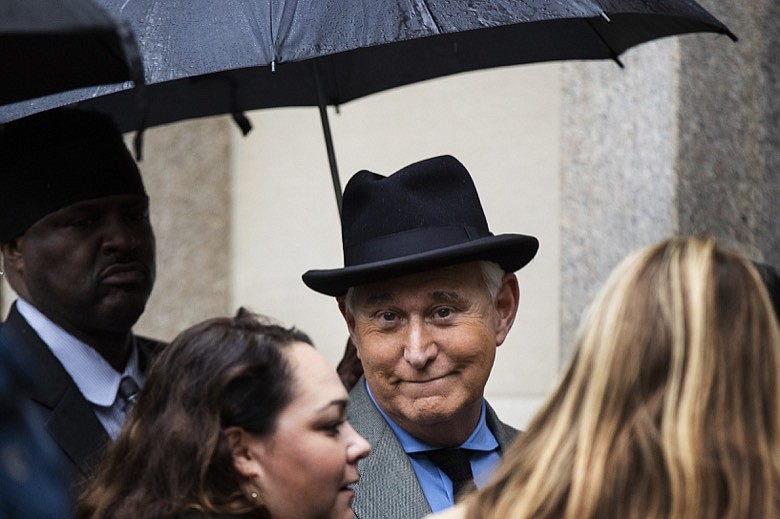It isn't yet clear whether improper political influence led the Justice Department to ask for a more lenient sentence for Roger Stone, a longtime confidant of President Trump, than the one originally proposed by federal prosecutors. But Trump's outrageous comments about the original sentence recommendation - and his history of interfering in the administration of justice - require that the decision be investigated.
Trump's disdain for the rule of law and his refusal to be constrained to the ordinary rules that govern presidential behavior are well known. But he must not be encouraged and emboldened in them just because he was acquitted by the Senate in his impeachment trial.
Stone is a flamboyant political operative - a self-described "dirty trickster" - who was convicted last year of lying to Congress, witness tampering and obstructing a congressional investigation into Russian meddling in the 2016 election. At issue was Stone's pursuit of Russian-hacked emails damaging to Hillary Clinton's 2016 presidential bid.
On Monday, prosecutors recommended to a federal judge that Stone, 67, be sentenced to a prison term of seven to nine years, based on the government's assessment of his conduct under federal sentencing guidelines.
But on Tuesday, after Trump tweeted that the recommendation was "horrible and very unfair," the Justice Department changed course. It told the court that the original recommendation "does not accurately reflect the Department of Justice's position on what would be a reasonable sentence in this matter" and that the actual sentence should be "far less." That reversal led to the withdrawal of four prosecutors from the case.
Whether the original recommendation was overly harsh can be debated. Although advisory federal sentencing guidelines take a mathematical approach to sentencing, some decisions about aggravating factors can turn on subjective judgment, and prosecutors sometimes overreach. But the issue isn't whether the original recommendation was too harsh. It's whether it was softened to placate Trump, whose meddling in the matter is entirely inappropriate.
The Justice Department said officials made the decision to change the sentencing recommendation before Trump's tweet, and Trump himself said Tuesday that "I have not been involved in it at all." But skepticism is understandable, given Trump's demonstrated disrespect for the impartial administration of justice and his past actions, including his documented efforts to impede the investigation of special counsel Robert S. Mueller III.
That is why the Justice Department's inspector general must investigate this episode and why Attorney General William Barr needs to be open about the chain of events when he testifies before the House Judiciary Committee next month.
On Wednesday, Trump congratulated Barr "for taking charge of a case that was totally out of control and perhaps should not have even been brought." The burden is on Barr to prove that the Justice Department wasn't doing the president's bidding.
Los Angeles Times
